As a truly inclusive employer, Whitespace stays on the cutting-edge of innovation by giving employees the tools and support they need to get creative, make mistakes, and to grow. Employees are celebrated for exactly who they are, allowing individuals’ talents to be identified and cultivated.
This March, Whitespace is celebrating diversity and inclusion by shining a light on Developmental Disabilities Awareness Month and World Down Syndrome Day.
Inclusion matters. Representation matters. As a Whitespace employee, I know that I am valued for all of who I am. I’m allowed to not be “normal”, and I’m respected, despite my own neurodivergence. I want that same value attributed to my cousin, Benji, despite his having Down Syndrome.
In preparation for this blog post, I reached out to his mom to ask if there was anything she wished more people understood about children with Down Syndrome, here’s what she told me:
They aren’t always happy. In fact, they have a wide range of emotions and can be more stubborn or persistent than their neurotypical counterparts. 😂
They have far greater intelligence than people seem to realize. Their potential is also far more than many give them credit for. They just need a little more time to get there.
If you let someone into your life with DS, you will, more than likely, have a friend for life. ![]()
-Patti
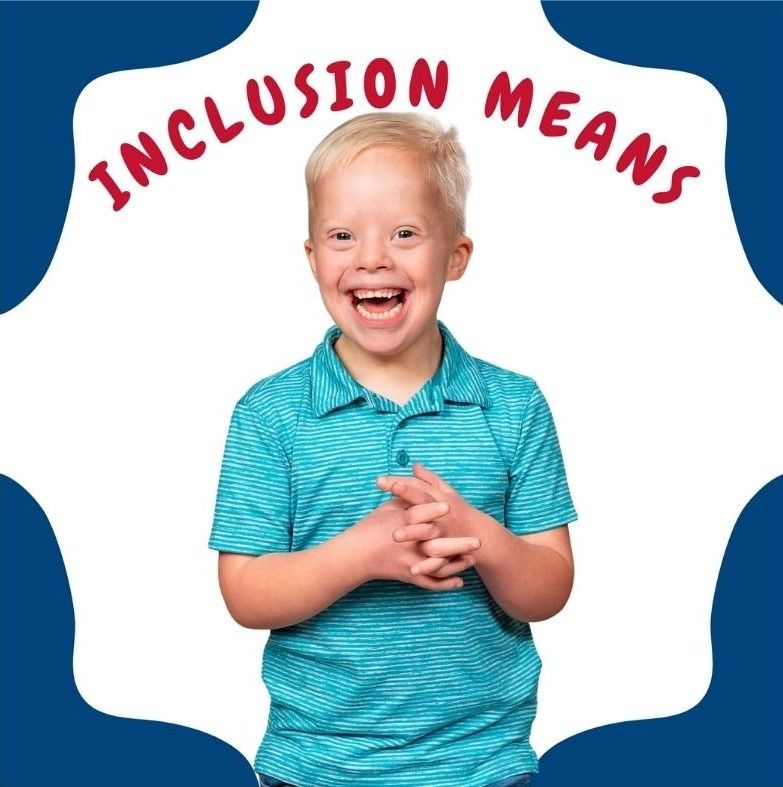
The theme for the 2022 Developmental Disabilities Awareness Month, Worlds Imagined, challenges us to embrace this current era of global change, and to imagine the sort of meaningful changes that we would like to see in our world. Can we dare to imagine a world that’s fully inclusive to people with intellectual and developmental disabilities (IDD)?
“The opposite of sensitive is not brave. It’s not brave to refuse to pay attention, to refuse to notice, to refuse to feel and know and imagine. The opposite of sensitive is insensitive, and that’s no badge of honor.”
― Glennon Doyle, Untamed
Before we can truly delve into what this brave vision of our new world looks like, we need to understand what these disabilities are, and what barriers currently exist, which keep those affected from fully participating in our world, today.
While exact definitions for IDDs vary by source (i.e., Social Security vs. CDC vs. Dept. of Education definitions), the following is a pretty robust general overview adapted from National Institute of Child Health and Human Development (NICHD):
IDDs are differences that are usually present at birth and that uniquely affect the trajectory of the individual’s physical, intellectual, and/or emotional development. IDD is the term often used to describe situations in which intellectual disability and other disabilities are present.
The term Intellectual Disability starts any time before a child turns 18 and is characterized by differences with both:
Intellectual functioning or intelligence, which include the ability to learn, reason, problem solve, and other skills; and
Adaptive behavior, which includes everyday social and life skills.
The term Developmental Disabilities is a broader category of often lifelong challenges that can be intellectual, physical, or both.
Examples of IDDs include: Cerebral Palsy, Down Syndrome, Autism Spectrum Disorders, Fragile X Syndrome, Deafness or Blindness, Perceptual Disabilities, Traumatic Brain injuries, Dyslexia, and Developmental Aphasia
Approximately 15% of children aged 3-17, or 1 in 6 children, in the U.S. has some type of developmental disability. (The Achievable Foundation)
Recent estimates show there are approximately 4.92 million individuals in the U.S. living with an intellectual disability, which is about 17% of the U.S. population. (The Achievable Foundation)
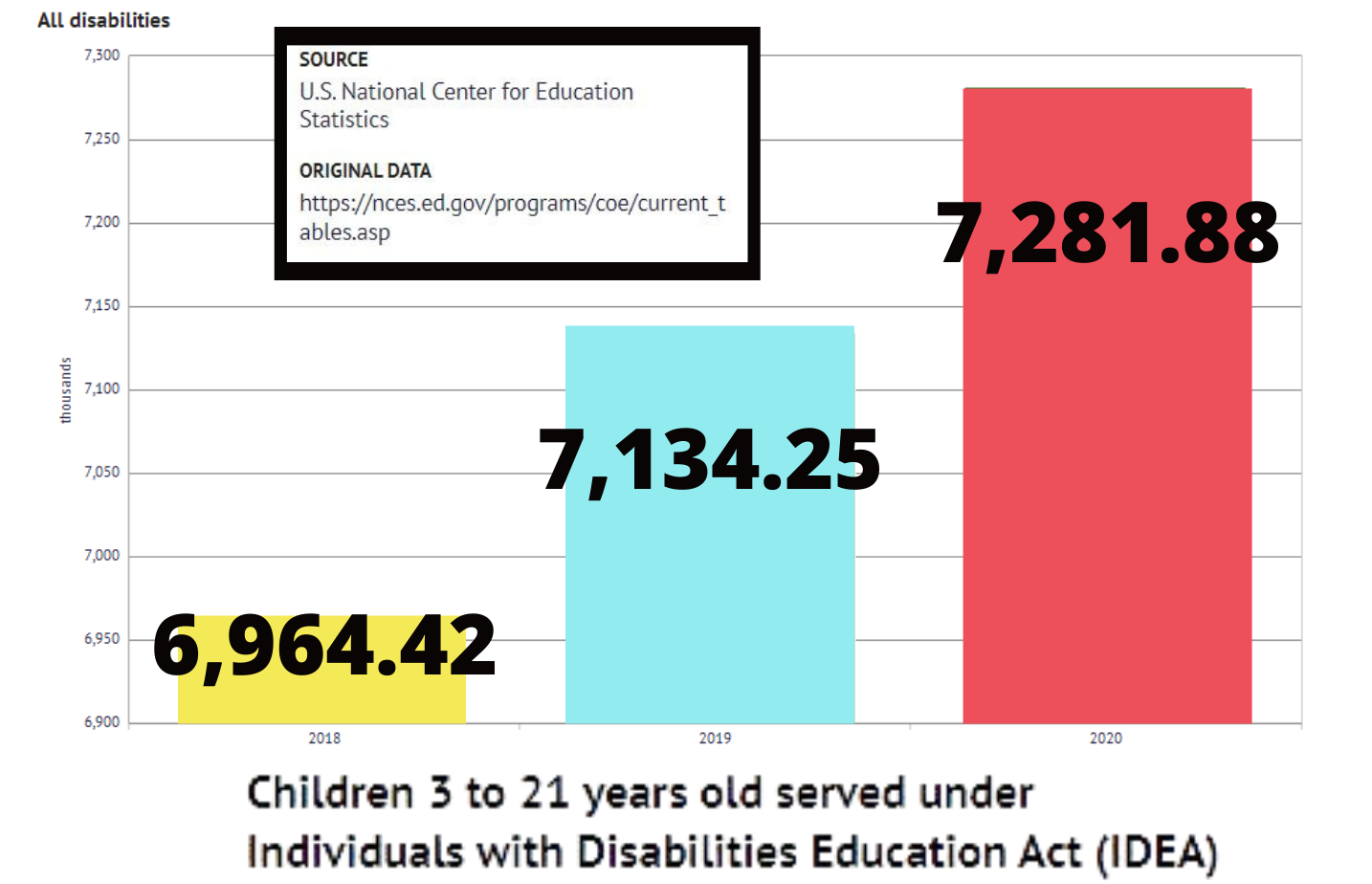
Thankfully, Home : Case for Inclusion has been doing research and offering recommendations for improvements in this space since 2006. Here are a couple of snips from their 2022 Case for Inclusion.
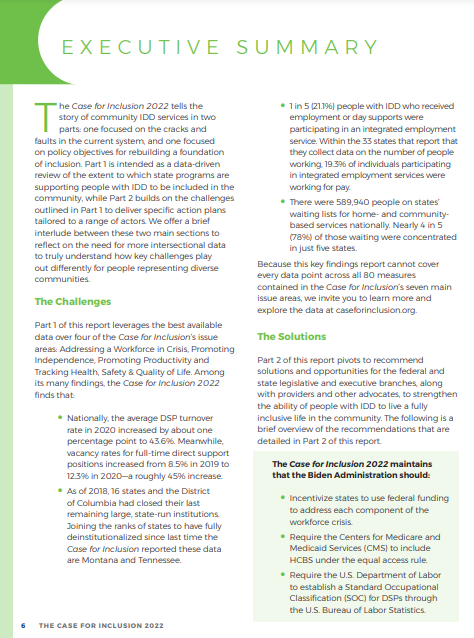
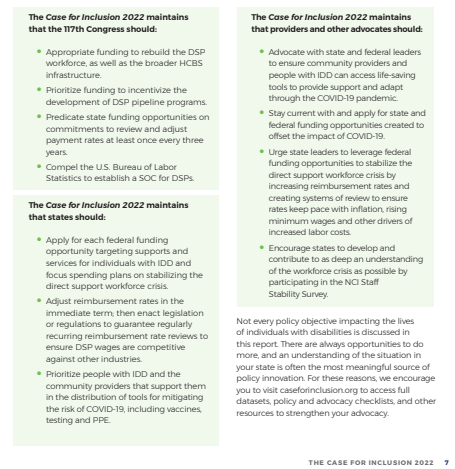
To view the full report, please click here: 2022 Key Findings :: Case for Inclusion
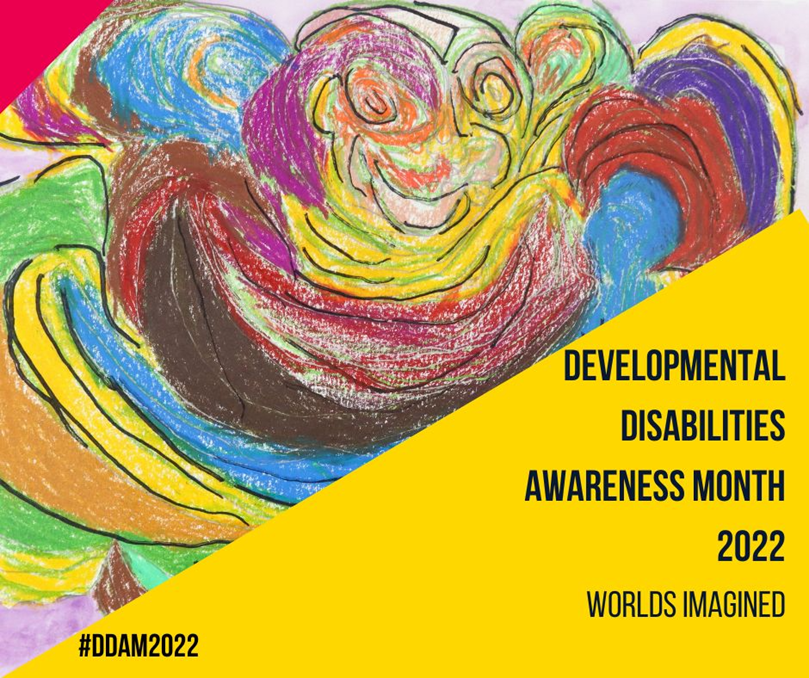
In addition to taking time out this month to imagine a more inclusive world for all, please prepare your wackiest, mismatched socks to wear in celebration of World Down Syndrome Day with us, this coming Monday, 21 March, 2022.
“Every year, on March 21, people all around the world come together to celebrate World Down Syndrome Day by wearing brightly colored, mismatched socks. March 21 is symbolic because people with Down syndrome have 3 copies of their 21st chromosome. Socks were chosen because the karyotype of DS chromosomes actually looks like mismatched socks!”
